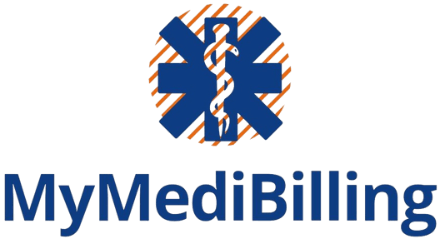Introduction
Credentialing services are a crucial aspect of the healthcare industry, as well as many other professions. These services involve the verification of a professional’s qualifications, experience, and background to ensure that they meet the standards and requirements set by their respective industry. In the healthcare field, credentialing is especially important as it directly impacts patient safety and the quality of care provided.
Healthcare providers, such as physicians, nurses, and allied health professionals, must undergo a thorough credentialing process before they can practice in a hospital, clinic, or other healthcare setting. This process involves verifying their education, training, licensure, and any relevant certifications to ensure that they are qualified to provide care to patients. In addition to healthcare professionals, credentialing services are also essential for non-healthcare professionals in various industries.
For example, in the legal and financial sectors, professionals must undergo credentialing to demonstrate their expertise and qualifications to potential clients and employers. Credentialing services help to establish trust and credibility in these professions, as clients and employers can be assured that the professionals they are working with have the necessary qualifications and experience to meet their needs. Overall, credentialing services are vital in ensuring that professionals across different industries meet the necessary standards and requirements to practice and provide services effectively and safely.
Key Takeaways
- Credentialing services are essential for verifying the qualifications and background of healthcare providers and ensuring they meet industry standards.
- Credentialing is crucial for healthcare providers as it helps build trust with patients and ensures compliance with regulatory requirements.
- Credentialing services benefit healthcare organizations by reducing the risk of hiring unqualified providers and improving the quality of care.
- Credentialing plays a vital role in ensuring patient safety by verifying the credentials and competence of healthcare providers.
- Credentialing services are also available for non-healthcare professionals, such as contractors and consultants, to ensure they meet industry standards and regulations.
Understanding Credentialing Services
Credentialing services involve a comprehensive process of verifying and assessing a professional’s qualifications, experience, and background to ensure that they meet the standards and requirements set by their industry. This process typically includes verifying education, training, licensure, certifications, work history, and any relevant professional memberships. The goal of credentialing is to ensure that professionals have the necessary qualifications and experience to provide high-quality services and maintain the safety and well-being of their clients or patients.
In the healthcare industry, credentialing services are particularly important due to the high stakes involved in providing medical care. Healthcare providers must undergo a rigorous credentialing process before they can practice in a hospital, clinic, or other healthcare setting. This process involves verifying their education, training, licensure, certifications, and work history to ensure that they are qualified to provide care to patients.
Credentialing also involves ongoing monitoring and re-verification of a provider’s credentials to ensure that they remain in good standing and continue to meet the necessary standards and requirements.
The Importance of Credentialing for Healthcare Providers
Credentialing is of utmost importance for healthcare providers as it directly impacts patient safety and the quality of care provided. By undergoing a thorough credentialing process, healthcare providers demonstrate that they have the necessary qualifications and experience to provide high-quality care to patients. This helps to ensure that patients receive safe and effective treatment from qualified professionals who have met the standards and requirements set by their industry.
In addition to ensuring patient safety, credentialing also helps to maintain the reputation and credibility of healthcare providers and organizations. By demonstrating their qualifications and experience through the credentialing process, healthcare providers can build trust with patients, colleagues, and employers. This trust is essential for maintaining a positive reputation and attracting new patients and opportunities for professional growth.
Overall, credentialing is essential for healthcare providers to demonstrate their competence and commitment to providing safe and effective care to their patients.
How Credentialing Services Benefit Healthcare Organizations
| Benefits of Credentialing Services | Importance |
|---|---|
| Ensures provider qualifications | Ensures quality of care |
| Reduces risk of malpractice | Meets regulatory requirements |
| Streamlines insurance reimbursement | Builds trust with patients |
Credentialing services offer numerous benefits to healthcare organizations by ensuring that they have qualified and competent professionals on their staff. By thoroughly vetting the qualifications and experience of healthcare providers, organizations can maintain high standards of care and patient safety. This helps to build trust with patients and the community while also reducing the risk of malpractice and other adverse events.
Furthermore, credentialing services help healthcare organizations comply with regulatory requirements and accreditation standards. Many regulatory bodies and accrediting organizations require healthcare providers to undergo a thorough credentialing process to ensure that they meet the necessary standards for quality and safety. By partnering with a reputable credentialing services provider, healthcare organizations can streamline this process and ensure that their providers remain in good standing with regulatory bodies and accrediting organizations.
The Role of Credentialing in Ensuring Patient Safety
Credentialing plays a critical role in ensuring patient safety by verifying that healthcare providers have the necessary qualifications and experience to provide high-quality care. By undergoing a thorough credentialing process, providers demonstrate that they have met the standards and requirements set by their industry, which helps to reduce the risk of medical errors and adverse events. This is especially important in the healthcare industry, where patient safety is paramount.
In addition to verifying qualifications and experience, credentialing also involves ongoing monitoring and re-verification of a provider’s credentials. This helps to ensure that providers remain in good standing and continue to meet the necessary standards for quality and safety. By maintaining up-to-date credentials for their providers, healthcare organizations can further enhance patient safety and quality of care.
Credentialing Services for Non-Healthcare Professionals
While credentialing is often associated with healthcare professionals, it is also essential for non-healthcare professionals in various industries. For example, in the legal and financial sectors, professionals must undergo credentialing to demonstrate their expertise and qualifications to potential clients and employers. Credentialing services help these professionals establish trust and credibility by verifying their education, training, licensure, certifications, work history, and any relevant professional memberships.
By undergoing a thorough credentialing process, non-healthcare professionals can demonstrate that they have the necessary qualifications and experience to provide high-quality services to their clients or employers. This helps to build trust and confidence in their abilities while also ensuring that they meet the necessary standards and requirements set by their industry.
The Impact of Credentialing on Insurance Reimbursement
Credentialing also plays a significant role in insurance reimbursement for healthcare providers. Many insurance companies require healthcare providers to undergo a thorough credentialing process before they can be included in their network of approved providers. This process involves verifying the provider’s qualifications, experience, licensure, certifications, and work history to ensure that they meet the necessary standards for quality and safety.
By partnering with a reputable credentialing services provider, healthcare organizations can streamline this insurance process and ensure that their providers are included in insurance networks. This allows providers to receive reimbursement for the services they provide to patients who are covered by these insurance plans. Overall, credentialing is essential for healthcare providers to access insurance reimbursement while also maintaining high standards of care and patient safety.
Choosing the Right Credentialing Services Provider
When selecting a credentialing services provider, several factors must be considered to ensure that they meet the needs of your organization or profession. First and foremost, choosing a provider with a proven track record of delivering high-quality credentialing services is crucial. This includes verifying qualifications, experience, licensure, certifications, work history, and any relevant professional memberships.
Additionally, it is important to choose a provider that offers comprehensive credentialing services tailored to your specific industry or profession. This may include ongoing monitoring and re-verification of credentials to ensure that providers remain in good standing with regulatory bodies and accrediting organizations. By partnering with a reputable credentialing services provider, you can ensure that your organization or profession maintains high standards of care, patient safety, and professional credibility.
Conclusion
Credentialing services are vital in ensuring that professionals across different industries meet the necessary standards and requirements to practice effectively and safely. Whether in the healthcare industry or other professions such as legal or financial services, credentialing helps to establish trust and credibility while maintaining high standards of care and patient safety. By partnering with a reputable credentialing services provider, professionals can demonstrate their qualifications and experience while also accessing opportunities for professional growth and insurance reimbursement.
Overall, credentialing is essential for maintaining the integrity of professions while ensuring the safety and well-being of clients or patients.


